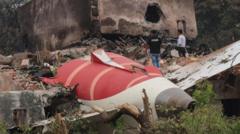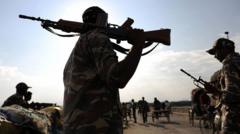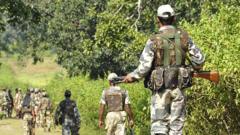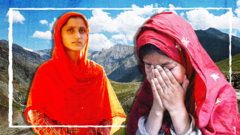Kashmir, often portrayed as a picturesque paradise, faces escalating despair following a brutal attack that claimed 26 lives, amplifying the region's ongoing grievances over militarization and restricted freedoms.
Kashmir's Turmoil: Beauty Amidst Tragedy

Kashmir's Turmoil: Beauty Amidst Tragedy
The recent massacre underscores the darkness in a region celebrated for its stunning landscapes, revealing deep-rooted tensions and fears among its inhabitants.
Kashmir is many things. It is a disputed borderland that India and Pakistan have fought over for more than three-quarters of a century, making it one of the world’s most strife-torn and militarized zones. It is a Bollywood cinematographer’s alpine dream, its fabled beauty and trauma providing grist for tales of love, longing, and war. Since 2019, when the government of Prime Minister Narendra Modi of India tightened its grip on the Indian-controlled part of Kashmir, promising security and economic development, it has become a tourist hot spot drawing millions of visitors a year. In the government’s narrative of progress, Kashmir is a shining success. The region’s people have their own story to tell. It is one of festering alienation—magnified by last week’s horrific terrorist attack in Kashmir—after years of living under the watchful eyes of security forces while being deprived of many democratic rights.
Indian troops have launched an aggressive, widespread hunt for the killers that feels like collective punishment to many in the Muslim-majority region. The authorities have detained thousands of Kashmiris for questioning and demolished the homes of at least 10 people accused in the attack. The repercussions of this violence are not just immediate; they penetrate deeply into the societal fabric, fostering fear and distrust among locals who now face the dual threat of terrorism and stringent government crackdowns. As the picturesque landscape remains marred by this tragedy, the resilience of the Kashmiri people is being tested once again.
Indian troops have launched an aggressive, widespread hunt for the killers that feels like collective punishment to many in the Muslim-majority region. The authorities have detained thousands of Kashmiris for questioning and demolished the homes of at least 10 people accused in the attack. The repercussions of this violence are not just immediate; they penetrate deeply into the societal fabric, fostering fear and distrust among locals who now face the dual threat of terrorism and stringent government crackdowns. As the picturesque landscape remains marred by this tragedy, the resilience of the Kashmiri people is being tested once again.





















